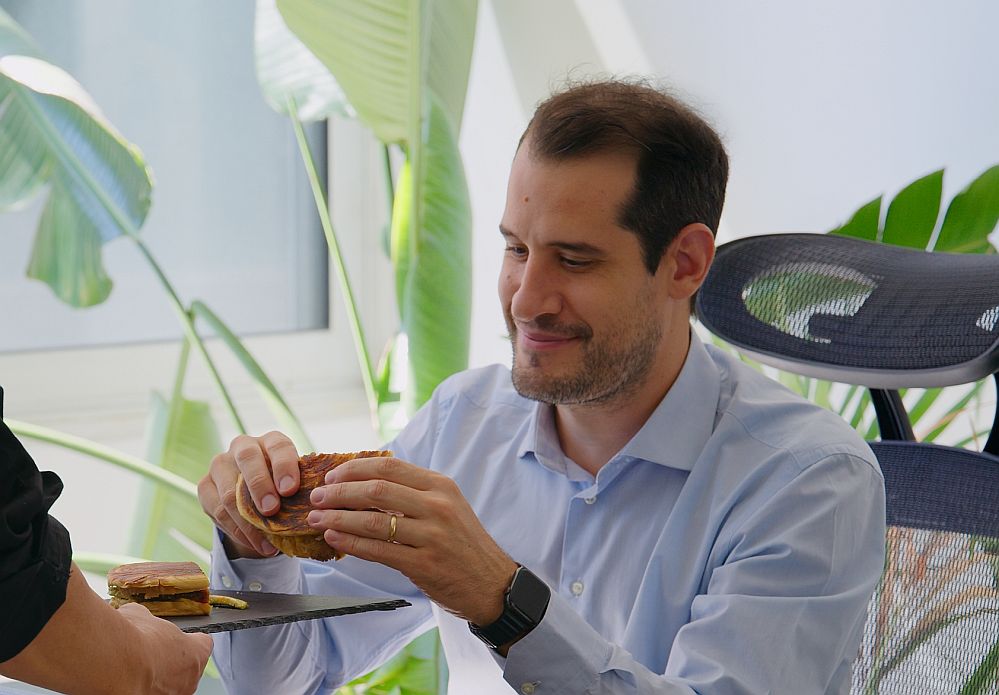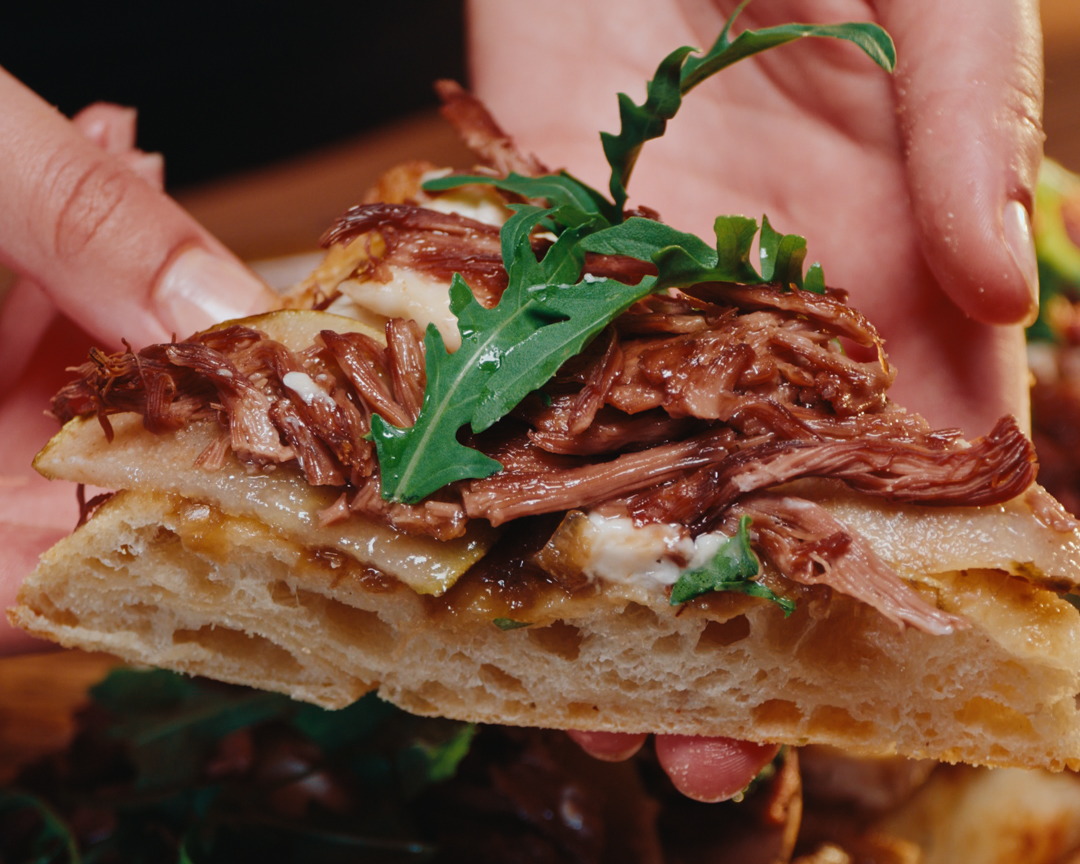- Barcelona-based plant-based meat startup Novameat has raised a €17.4m ($19.2 million) series A round.
- Sofinnova and Forbion BioEconomy led the round, supported by existing investors Praesidium, Unovis Asset Management and Rubio Impact Ventures.
- The capital injection—which takes Novameat’s total funding to about €25m ($27.5 million)—will be used to support entry into new markets in Europe, expand the product portfolio, scale production, and accelerate R&D, says the startup, which initially experimented with 3D printing but has since migrated to a more scalable proprietary ‘microforce’ production process.

Proprietary texturizing tech has ‘significantly lower energy requirements’ than high and low moisture extrusion
The low temperature, low pressure texturizing technology, which Novameat describes as “microforce technology,” is cheaper and faster than high moisture extrusion, and enables the production of strips, steaks, chunks and pulled meats without the use of ingredients such as methylcellulose and carrageenan, founder and CEO Giuseppe Scionti told AgFunderNews.
“We were pioneers in the space by starting with 3D-printing machines at desktop scale, but for the last three years we’ve been using a different approach to get to commercial scale. 3D printing is a great tool for rapid prototyping, but when we produce at scale, we use large scale equipment off the shelf that we have been able to adapt to our microforce technology.
“I would describe it as an alternative to extrusion that enables us to create a filamentous structure, a three-dimensional micro structured network of fibers that can create a whole portfolio of products.”
In layman’s terms, he said, “3D printing is one nozzle creating one fiber at a time. We can do something similar with hundreds of nozzles, a kind of patented micro-extrusion that does not require high temperatures. It works at room temperature and means you can get optimal results with a wider array of proteins beyond soy and gluten.”
As for production costs, he claimed, Novameat’s microforce tech has “significantly lower energy requirements than high and low moisture extrusion.”
“Novameat’s proprietary technology is truly groundbreaking. We see significant potential not only in their current products but also in the pipeline of innovations they are developing.” Alex Hoffmann, General Partner, Forbion’s BioEconomy Fund

Expanded production, market reach
The series A capital injection will help Novameat—which is currently supplying foodservice markets in the UK, Spain, and Benelux (Belgium, Netherlands, Luxembourg)—expand its reach, said Scionti.
“So we’re currently supplying distributors that serve hotels, restaurants, and so on, but now we will also be able to engage with larger clients, for example, larger catering companies and food manufacturers when we get BRC certified. We are lucky that we are getting inbound inquiries and we have been actively engaged by some larger players in several countries, but our first priority is Europe.”
Novameat’s manufacturing facility in Barcelona, which currently produces about five tons per month, is capable of producing 10 tons a month, and can be expanded to do “about 50 tons,” said Scionti.
He added: “We are also engaging with companies across Europe exploring different kinds of production partnerships with industry players such as food manufacturers.”
“We’ve seen remarkable strides by Novameat’s team since our initial investment. Their continual innovation in creating premium, plant- based meat products is unmatched.” Dan Altschuler, managing partner, Unovis Asset Management
Quality and price holding alt meat market back
As to what gave investors the confidence to back Novameat at a time when investment and confidence in meat alternatives have taken a hit, he said: “Our products use only natural ingredients and are very neutral in taste so that chefs can create what they want to create. And as we produce ourselves, this allows us to control the cost of production and start with very good unit economics, which is a big deal in this sector.
“We have a clear path to profitability that is not dependent on any technological breakthrough, and we also have a wide range of products that chefs can work with, including a new shredded plant-based beef product launching on September 16. How many burgers do people really want to eat?”
Asked what is holding the alt-meat sector back, he said: “It’s very simple: quality and price.”




